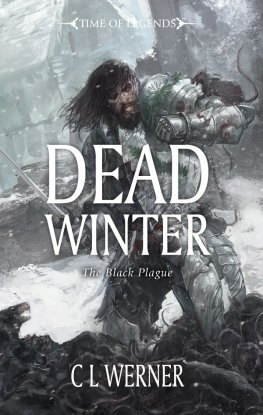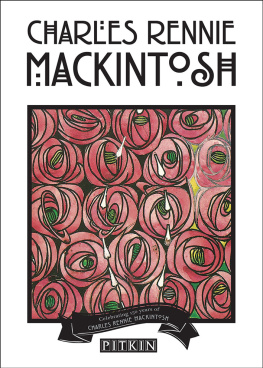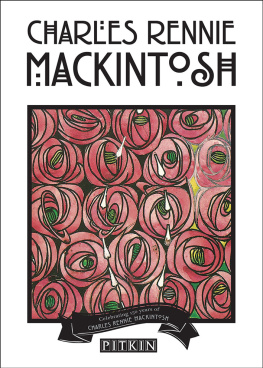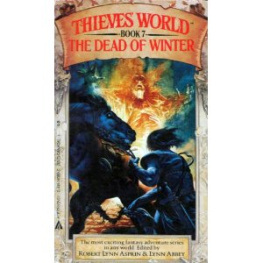Rennie Airth - Dead of Winter
Here you can read online Rennie Airth - Dead of Winter full text of the book (entire story) in english for free. Download pdf and epub, get meaning, cover and reviews about this ebook. genre: Detective and thriller. Description of the work, (preface) as well as reviews are available. Best literature library LitArk.com created for fans of good reading and offers a wide selection of genres:
Romance novel
Science fiction
Adventure
Detective
Science
History
Home and family
Prose
Art
Politics
Computer
Non-fiction
Religion
Business
Children
Humor
Choose a favorite category and find really read worthwhile books. Enjoy immersion in the world of imagination, feel the emotions of the characters or learn something new for yourself, make an fascinating discovery.

- Book:Dead of Winter
- Author:
- Genre:
- Rating:4 / 5
- Favourites:Add to favourites
- Your mark:
- 80
- 1
- 2
- 3
- 4
- 5
Dead of Winter: summary, description and annotation
We offer to read an annotation, description, summary or preface (depends on what the author of the book "Dead of Winter" wrote himself). If you haven't found the necessary information about the book — write in the comments, we will try to find it.
Dead of Winter — read online for free the complete book (whole text) full work
Below is the text of the book, divided by pages. System saving the place of the last page read, allows you to conveniently read the book "Dead of Winter" online for free, without having to search again every time where you left off. Put a bookmark, and you can go to the page where you finished reading at any time.
Font size:
Interval:
Bookmark:
Rennie Airth
Dead of Winter
PROLOGUE
Paris, May 1940
Dusk was falling by the time Maurice Sobel reached Neuilly, and he walked the short distance from the Metro to his house in the cold, not quite earthly light of the blue-painted street lamps which were the citys sole concession to the war that was about to engulf it. His pace was brisk, and twice he glanced over his shoulder to assure himself that the street behind him was empty. The creak of the garden gate when he opened it was a welcome sound.
Only then did he relax his grip on the handle of the attache case he was carrying. Since leaving Eyskenss office hed been holding it tightly, and he felt the prickle of pins and needles in his fingers now as he shifted the case to his left hand and fumbled in his pocket for his house key.
Normally he would have been brought home by car, but that morning hed paid off the last of the household staff, including his chauffeur, a blunt Breton by the name of Dugarry. Maurice had found the farewells upsetting and the sight of the darkened house as he walked up the gravel path to the front door was a reminder of the loss suffered by all parties. Florence, their cook, and a family retainer for the better part of a quarter of a century, had clung to his hand when theyd said goodbye. Thered been tears in her eyes.
Tell Madame She had begun to speak three or four times, but been unable to continue. Ah, but youll be back It was all she could say.
Maurice had pressed her hand in return. Of course, of course Not knowing if it was true. Not knowing if they would ever meet again.
With a sigh he unlocked the door and switched on the lights in the hall. The emptiness around him seemed unnatural he was used to the house being filled with people, loud with the voices of family and friends and he regretted, not for the first time, his decision to postpone his departure, when he could have taken passage on the same ship that had carried his wife and their two sons across the Atlantic to New York a month earlier. Unwisely, deceived by the slow march of events in Europe following the occupation of Poland, hed chosen to remain in Paris for a little while longer, taking time to dispose of his business and to attend to the many other details, such as the leasing of his house, which had required his attention. The delay had proved costly. He had not yet wound up his affairs when the long-threatened German invasion had been launched a week earlier, and with their armoured units advancing now with giant strides across the Low Countries and according to as yet unconfirmed reports about to encircle the French army entrenched on the Somme, he had been forced to take emergency measures, selling off the last of his stock at rock-bottom prices and, even worse, engaging in the kind of transaction he would normally have shunned in an attempt to salvage at least a portion of these assets.
On that last day the last for him, at any rate the city had worn an air of exhaustion. The soft breeze with its promise of spring had expired, like the hopes of so many, and it was the stifling heat of summer that hung in the air now and seemed poised to descend on streets already starting to empty as cars made their slow exit bumper to bumper from the capital in anticipation of the threat that daily drew closer. Although government spokesmen had said that every inch of French soil would be defended, Maurice knew from other sources from the rumours that sped from mouth to mouth that the German panzers were already moving south from the coast. He had glimpsed military lorries drawn up in lines outside ministries, prepared to cart away files and other vital equipment. And although no refugees had yet appeared in Paris, travellers arriving from the north-east spoke of roads clogged by those trying to escape the fighting; of whole families on the move pushing handcarts loaded with their possessions. More ominously still, there were even reports that French soldiers without their arms had joined the fleeing columns.
Although his appointment with Eyskens was not until the afternoon, Maurice had gone into the city earlier and after calling at his bank had paid a final visit to what had been until recently the store that bore his familys name: Sobel Freres. Furriers of distinction, the shop was located off the rue St Honore, and although Maurice had relinquished the lease on the property he still had a key to the street door. Wandering about the deserted rooms, he had felt a deep sadness. It had taken his family years to build up the business the company had been founded by his grandfather and its loss felt like an amputation. He could think of no sight more desolate that day than the rows of empty hangers where only a few weeks before the finest furs had been on display, no sign more indicative of abandonment and flight than the thin patina of dust already starting to gather on the glass-topped counters.
Seeking an antidote to his depression, hed chosen to lunch for the last time at a favourite restaurant in the rue Cambon, one he had patronized regularly over the years, where his face and name were known not only to the patron and waiters but also to some of the other clients, successful businessmen like himself, with whom he was accustomed to exchanging nods. No doubt some of them had heard of his decision to leave: he thought he detected sympathy in the glances cast his way. But for the most part they seemed preoccupied with their own affairs. (How could they not be?) They were taking stock of the new reality. And while there was little they could do to alter it, Maurice had nevertheless been distressed to observe the all too familiar hint of a shrug in their manner; that lift of the shoulders so peculiar to the French, signifying acceptance of a situation, however disagreeable.
Catching sight of his own image in a gold-framed mirror on the other side of the restaurant wryly noting the elegance of his appearance, his silvered hair barbered to a millimetre, the distinction of his dark suit, one of several hed had tailored in London, its sombre hue set off by a splash of red silk spilling from his breast pocket hed reflected on how little he differed from these pillars of the bourgeoisie, at least on the surface. How even now, he might have been pondering his countrys future in the light of the fate that was about to overtake it: assessing what impact occupation by a foreign power would have on himself and his family, how best to protect his interests. In all probability the course of his life had not differed much from theirs. As a youth he had run up debts and made a fool of himself over women to the despair of his father but later redeemed himself by volunteering to serve in the war which only a generation earlier had bled his country white, and being twice decorated for gallantry. He had married well and raised a family.
But none of that mattered any longer, he knew, none of it counted. The future lay with the jackbooted conquerors whose armoured units even now were beating a path to the citys gates, and they would not be deceived.
A Jew was a Jew.
Willem Eyskenss office, or rather his place of business, since buying and selling were very much part of his day-to-day operations, was located off the rue de Rivoli. The brass plate beside the locked door bore his name, but gave no further information. Indeed, if you were not expected there in all likelihood you were not welcome, and beyond the door, which was only opened after the caller had adequately identified himself, access was further barred by a guard, presumably armed, who sat at a table in the small entrance hall with an alarm button close at hand. Maurice had been given Eyskenss name by a business associate, a dealer in costume jewellery and other fashion accessories with whom he did business from time to time.
Hes a diamond broker with connections in Amsterdam. Dutch originally, but hes been settled here a long time. He only deals in good-quality stones, Ive been told, and hes discreet. He can certainly provide what you need at a price, of course.
Font size:
Interval:
Bookmark:
Similar books «Dead of Winter»
Look at similar books to Dead of Winter. We have selected literature similar in name and meaning in the hope of providing readers with more options to find new, interesting, not yet read works.
Discussion, reviews of the book Dead of Winter and just readers' own opinions. Leave your comments, write what you think about the work, its meaning or the main characters. Specify what exactly you liked and what you didn't like, and why you think so.





